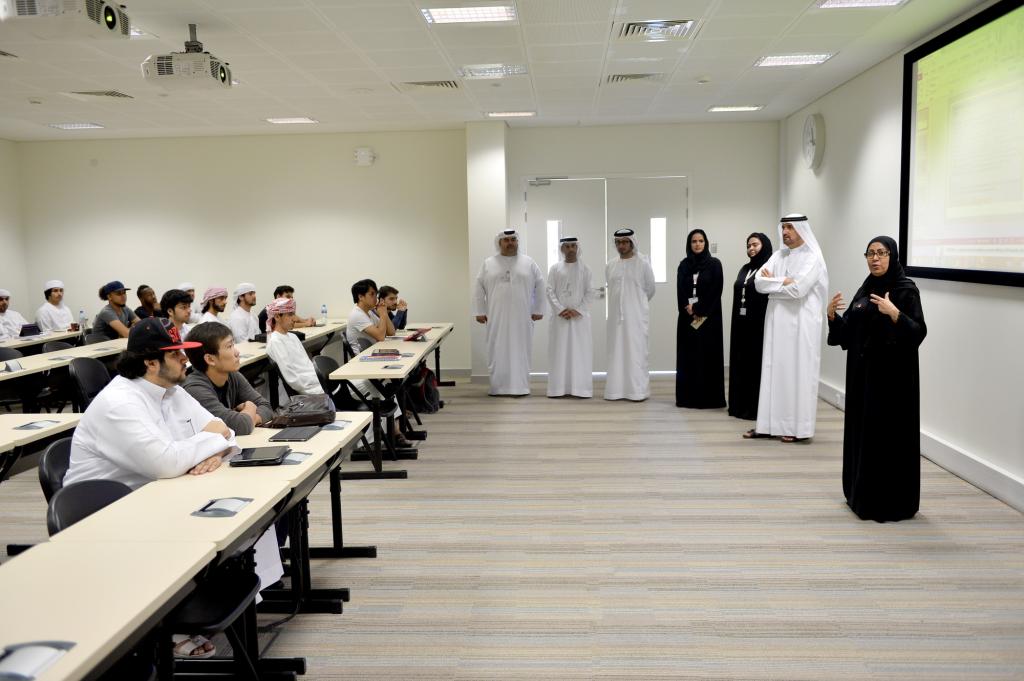Dubai, UAE: In a landmark development for the nation’s education system, the Ministry of Education (MoE), working alongside the Emirates College for Advanced Education (ECAE), has rolled out the Afaq programme — a specialised training initiative that will provide roughly 500 teachers across the UAE with the knowledge and tools to integrate artificial intelligence (AI) into teaching and learning.
With the rapid evolution of AI and its growing role in education worldwide, the UAE is ensuring that its educators are not left behind. The Afaq programme aims to cement the role of teachers in an AI-enriched classroom, emphasising that AI is a partner in education — not a replacement for the human role. The initiative comes as the UAE moves ahead with a nationwide AI-curriculum rollout and broader efforts to modernise pedagogy, assessment and educational content.
Key Features & Curriculum of the Afaq Programme
Teachers selected for the programme undergo a blended training course that combines theory and hands-on practice. The core elements include:
- Foundations of AI: Understanding what AI is, its capabilities, limits and relevance to education. Teachers explore machine learning, algorithms, data-driven decision-making and the ethical use of AI.
- Practical AI Tools for Classrooms: Participants learn to use AI-enabled platforms and tools that can help personalise learning, create interactive content, support students with special educational needs, and analyse student-performance data for intervention.
- Content Design & Innovation: Educators are trained to design educational materials and assessments leveraging AI — producing adaptive quizzes, simulation-based learning, interactive media and enriched learning paths.
- Pedagogical Shift: A core part of the programme emphasises a shift in teacher role — from "content deliverer" to "learning orchestrator". This means using AI to handle routine tasks (grading, basic feedback) while freeing the teacher to focus on higher-order skills like critical thinking, collaboration and creativity.
- Ethics, Privacy & Responsible Use: Given the sensitivity of student data and the ethical dimension of AI, the training includes modules on privacy protection, data governance, avoiding bias in AI-generated content and ensuring technology serves learning — not controls it.
Once complete, teachers receive certification and become part of a network of AI-enabled educators who can mentor peers, share resources and drive innovation within their schools.
Why the Initiative Matters
The launch of Afaq is timely for several reasons:
- The education sector globally is undergoing transformation as AI and digitisation reshape how students learn, how teachers teach and how education systems measure success.
- The UAE, intent on being a global leader in AI and preparing a workforce for the future, recognises that equipping teachers is foundational. Students will learn from teachers who are technologically literate and confident in using AI tools.
- By investing in teachers now, the UAE is building systemic capability rather than relying solely on external tools. That means sustainability, local capacity-building and ensuring that AI enhancement is rooted in school reality — not just hype.
- For students, the benefits are tangible: more personalised learning pathways, faster feedback, adaptive materials that respond to individual pace, and richer classroom experiences. For teachers, the benefits include reduced administrative load, smarter use of time and elevated professional status as "AI-aware educators".
What It Means for Schools & Students
Schools implementing the Afaq-trained teachers can expect changes on several fronts:
- Personalisation at Scale: With AI, teachers can detect which students are falling behind, where they excel and adjust teaching accordingly rather than rely on one-size-fits-all.
- Richer Content: Instead of standard worksheets, students may experience simulation-based activities, virtual-reality explorations, interactive assessments and real-time feedback loops — all designed or enabled with AI.
- Enhanced Teacher Focus: Rather than spending hours grading or generating repetitive content, teachers can concentrate on mentoring, discussion, guiding student inquiry and designing creative experiences.
- Special Educational Needs (SEN) Support: AI tools open up new ways of supporting learners with communication, visual or hearing challenges by providing assistive technologies, real-time language tools and personalised support paths.
- Data-Driven Insights: Schools will have access to dashboards that summarise student progress, learning-gaps, engagement metrics and suggest interventions — allowing more proactive educational support.
Challenges & Considerations
While the promise is strong, certain challenges must be addressed:
- Technological Access: Ensuring all schools — including remote or under-resourced ones — have the infrastructure (devices, connectivity) to make AI-enhanced teaching viable.
- Teacher Mindset Shift: Some educators may resist or feel intimidated by AI tools. Training must not only deliver tools but foster confidence, curiosity and ownership.
- Ethics & Privacy: Handling student data, avoiding algorithm-bias, preserving human relationships and limiting over-dependence on AI are real concerns. Teachers must be guardians of ethical use.
- Continual Professional Development: AI evolves rapidly; training cannot be a one-off. Ongoing support, updates, communities of practice and refresher modules will be necessary for sustainability.
- Measuring Impact: Beyond novelty, schools and the ministry will need to evaluate whether student outcomes — engagement, understanding, creativity — improve meaningfully with AI integration.
Vision & Future Outlook
The Afaq programme is a stepping stone in the UAE’s broader strategy to embed AI within education from early years onwards. As the national curriculum introduces AI literacy and related subjects, having teachers ready means the system will be prepared for the next-generation student.
Over the medium term, the UAE envisions:
- A national cadre of AI-aware educators who lead innovation, mentor peers and drive continuous improvement.
- Integration of AI into curriculum design, assessment frameworks and learning-management systems.
- Growth of AI-powered educational content created right here in the UAE, with local relevance, Arabic language support and regional alignment.
- Partnerships between schools, universities, research centres and technology firms to co-create teaching tools, content libraries and platforms adapted for the Gulf region.
- A shift from technology as a tool to technology as an enabler of new pedagogies — where student voice, creativity and agency are at the centre, supported by AI-driven insights.
Conclusion
The Afaq programme marks a significant milestone in the UAE’s education transformation journey. By focusing on teachers and equipping them with AI fluency, the UAE is investing not just in technology, but in human capability. This approach positions the country to deliver on its dual promise: high-quality education today and future-ready learners tomorrow.
As the first cohort of 500 teachers embarks on this journey, the real test will lie in how classrooms evolve, students engage and schools adopt. For now, the message is clear: in the UAE, the future of education is being co-designed by teachers who are ready to lead.
Image courtesy : Internet










